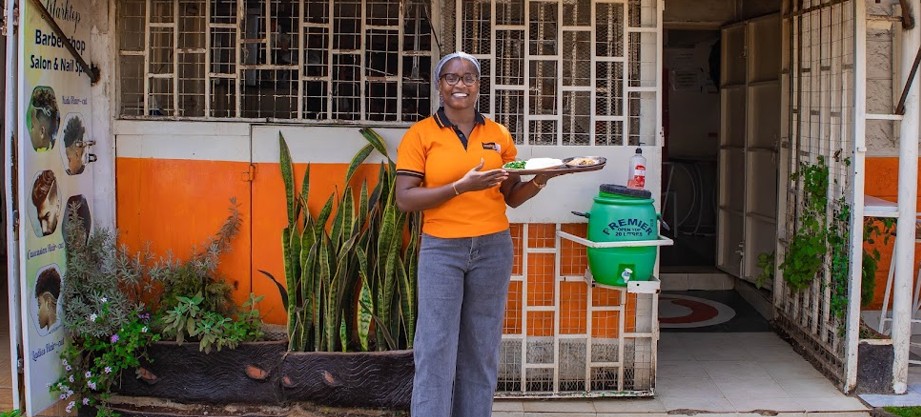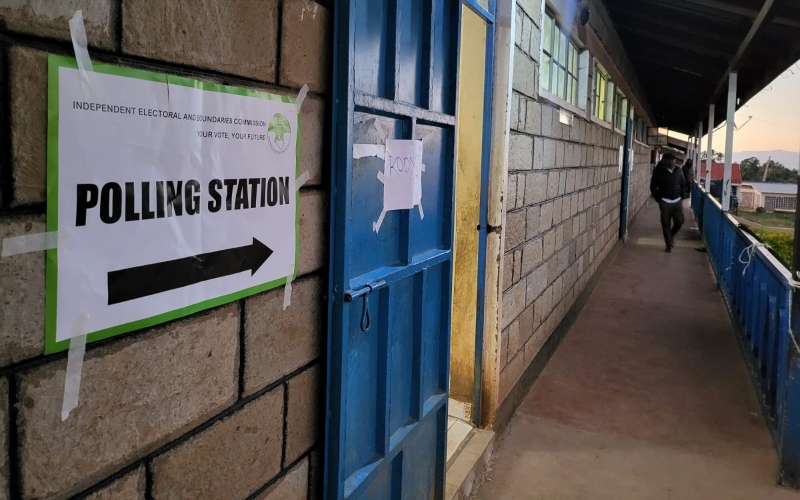How Kenya’s startups are surviving in today’s fiercely competitive online retail space

Despite most Kenyan startups collapsing within their first year, a growing number of entrepreneurs are defying the odds through digital partnerships, business training, and innovative growth strategies.
A new report by the Communications Authority of Kenya (CA) reveals that nearly 80 per cent of startups in Kenya fail within their first year, while only three to five per cent manage to survive beyond that period.
This stark reality has become a major hurdle for many aspiring entrepreneurs, forcing them to find innovative ways to stay afloat in an increasingly competitive market.
For those who make it past the first year, survival often comes with hard-earned lessons, resilience, and strategic adaptation.
One such story is that of Teddy’s Sushi Bar, a Nairobi-based restaurant specialising in Asian and seafood dishes, offering both dine-in and online services.
Thriving business
Founder Felix Teddy Lumumba shares how a crucial decision in 2021, to partner with e-commerce platform Glovo, turned his struggling startup into a thriving business with four branches across Nairobi.
At first, Teddy faced low sales and limited visibility.
“With my Sushi, I needed a platform where I could reach more customers,” he said.
The partnership became a turning point. Teddy’s weekly orders jumped from about three to over 90, while operational capacity rose from around 25 per cent to over 75 per cent — a remarkable turnaround for a young business in Kenya’s crowded e-commerce scene.
Support programmes
He credits this growth to support programmes such as Glovo Academy, which provides small and medium-sized enterprises (SMEs) with training in business management, customer service, and digital marketing.
“What makes such a partnership stand out is not just reach, it is the additional resources,” he said.
Through the Academy, Teddy learned critical skills in handling customer feedback, running promotions, and improving digital engagement.
“Customer service is the best of all,” he said. “We were taught how to handle negative reviews, run ads, and connect better with customers.”
These lessons helped him not only attract but also retain customers, strengthening his brand’s online presence.
 Felix Teddy Lumumba, founder and owner of Teddy’s Sushi Bar, a fast-growing Nairobi eatery specialising in Asian and seafood dishes. (Photo: Handout)
Felix Teddy Lumumba, founder and owner of Teddy’s Sushi Bar, a fast-growing Nairobi eatery specialising in Asian and seafood dishes. (Photo: Handout)
Operational improvements
Operational improvements also followed. Tools such as the Manager Portal gave Teddy more control over order management and promotions, while faster payments — reduced from over two weeks to just three working days — improved cash flow and stock management.
“That changed how I run my finances,” Teddy noted.
Now, with stronger systems and renewed confidence, Teddy plans to scale further.
“At this point, I would assess my ability to scale and grow at 65 per cent, a significant improvement from the 15 per cent when I began.”
His advice to other entrepreneurs is simple: build strategic partnerships, invest in learning, and stay consistent.
“Don’t chase money, chase passion. The passion will generate the money,” he said.
Another entrepreneur, Faustine Salleh, owner of Kitchen 21 Swahili Delicacies, echoes Teddy’s sentiments. Her restaurant, known for authentic coastal dishes, has also flourished through digital partnerships.
Since its launch four years ago, Kitchen 21 has expanded to three branches, with plans to open at least one new outlet every year.
“In the next three to five years, I should at least have five branches,” she said. “That way, I can maximise profit and growth in general. But beyond ambition, it is the support from partnerships that’s enabling this pace of expansion.”
Insights on logistics
Salleh says that through Glovo’s capacity-building initiatives, she gained access to improved packaging, financing, and business management knowledge. She also credits Glovo summits for exposing her to insights on logistics, order tracking, and app functionality.
“This new understanding helped streamline the delivery process and improve customer communication, especially for her 24-hour branch, which often handles late-night orders.”
Both Teddy and Salleh’s experiences underscore one key message: in today’s fast-paced e-commerce world, success is not just about a great product, it’s about the right ecosystem. Access to training, digital tools, and trusted platforms can make all the difference.
According to Glovo Kenya’s Chief Commercial Officer, Sonali Patel, the Glovo Academy, now in its fifth year, is dedicated to empowering small and medium-sized businesses through comprehensive training, financial support, and mentorship.
Sonali notes that 76 per cent of participating businesses have shown improved performance in key areas such as order volumes, gross merchandise value (GMV), and conversion rates.
More revenue
“Some businesses that previously received five orders daily have grown to 15 or 20, generating up to 15 per cent more revenue,” she said.
She emphasises that continuous skills development, promotional support, and operational guidance are vital for sustaining growth in Kenya’s competitive market.
Addressing the challenges many SMEs face, Sonali points out that economic pressure and rising competition, both online and offline, remain major obstacles. Many rely on social media platforms like Instagram but lack broader e-commerce strategies.
To bridge this gap, she recommends structured partnership initiatives like Glovo’s Academy, which trains businesses on pricing, promotions, and operational efficiency.
“This hands-on support equips businesses to convert online engagement into revenue effectively,” she said.
Looking ahead, Sonali says Glovo plans to expand the academy beyond Nairobi, establishing mini-academies in Mombasa and Kisumu to reach more entrepreneurs.
Recognising that cash flow remains a major challenge, she adds that the firm is exploring partnerships with financial institutions to provide favourable loans for SMEs seeking to scale.
Top Stories Today















































